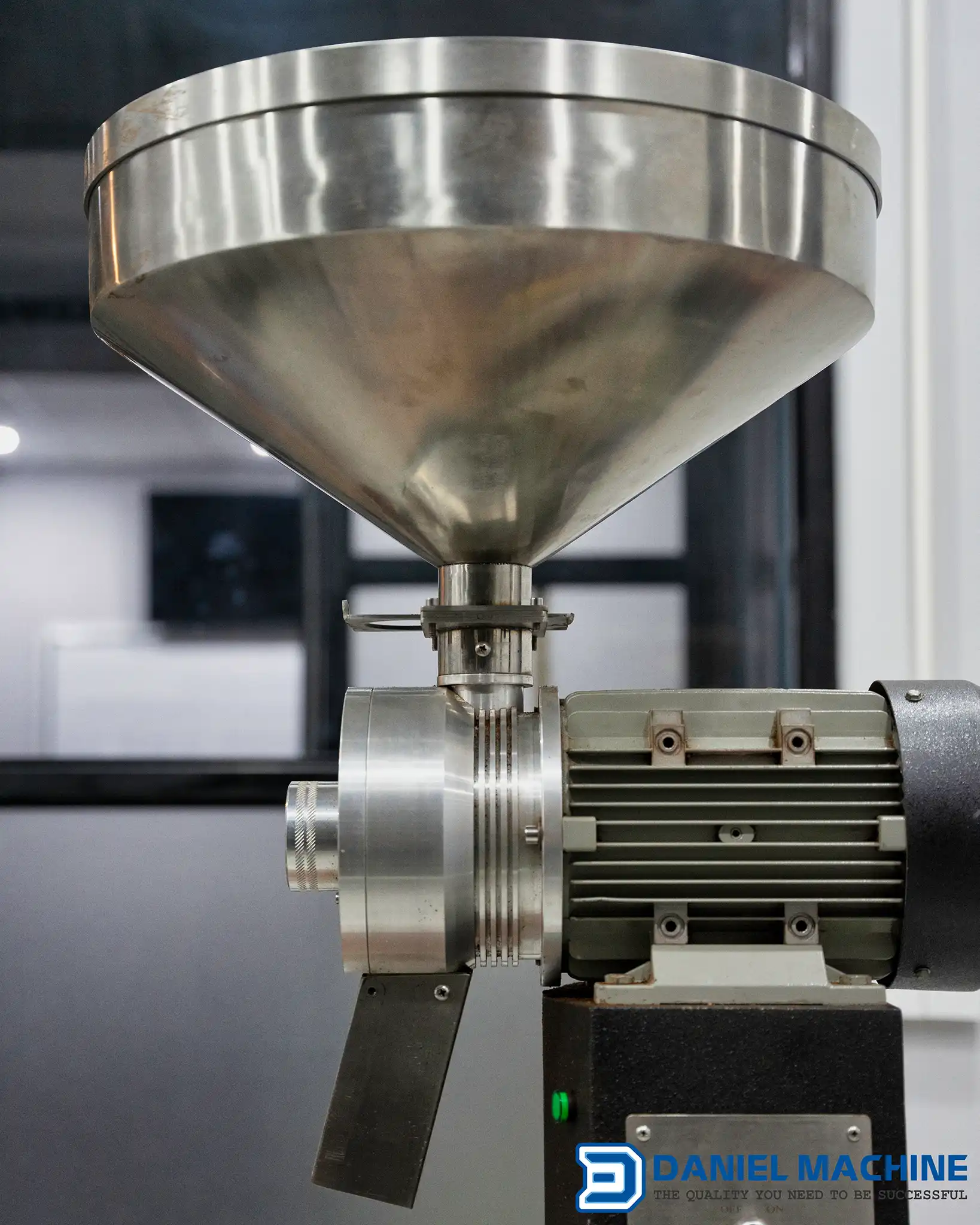Industrial Coffee Grinder Shopping Guide for Expert Coffee Makers
Industrial Coffee Mill Overview: Boost Performance and Quality
In the affordable landscape of coffee manufacturing, choosing the right commercial coffee grinder plays a crucial duty in improving both efficiency and product high quality. Understanding the nuances of different mill types and crucial attributes-- such as personalized grind setups and durable construction-- can dramatically affect the last taste account of the coffee. Additionally, the optimization of the grinding procedure, coupled with attentive maintenance, is important for sustaining performance gradually. As we discover these vital components, it comes to be obvious that the ramifications prolong past plain tools selection, influencing total business success in manner ins which require closer assessment.
Comprehending Mill Types
When selecting a commercial coffee mill, recognizing the numerous kinds available is critical for enhancing both flavor removal and functional performance. The two key sorts of grinders are blade grinders and burr mills. Blade grinders utilize sharp blades that chop coffee beans right into irregular sizes, leading to irregular removal and potentially undesirable tastes. While blade grinders are frequently much more affordable and ideal for small-scale procedures, they are generally not advised for industrial usage.

Inevitably, selecting the ideal sort of grinder is important to maintaining top quality and performance in coffee production, making it crucial for businesses to spend in top notch burr grinders for optimum outcomes.
Secret Functions to Consider
Choosing a commercial coffee mill requires careful consideration of numerous vital functions that can dramatically influence both performance and the overall coffee experience. Among the main facets to evaluate is the grinding mechanism. Burr grinders are usually favored over blade mills, as they supply a regular grind dimension, which is crucial for optimum extraction and flavor.
One more essential function is the mill's capacity. A versatile mill with several settings permits you to customize the grind size to various brewing approaches, improving the coffee's taste account.
The construction product additionally contributes in longevity and maintenance. Stainless-steel parts commonly supply durability and are less complicated to clean, which is essential for keeping health standards. Examine the mill's noise degree, specifically in a busy coffee shop or manufacturing atmosphere, where extreme noise can be turbulent. Buying a mill that stabilizes these attributes can considerably boost both operational efficiency and the high quality of the coffee offered.
Optimizing Grinding Process
To accomplish the best outcomes in coffee prep work, enhancing the grinding procedure is essential. The grind size significantly affects removal, flavor, and general quality of the made coffee. Various developing approaches require particular work sizes; for instance, coffee requires a great grind, while French press necessitates a coarse appearance. Understanding the relationship in between work size and brewing technique is the initial step in optimization.


Furthermore, keeping an eye on the grinding rate can enhance the process. Slower grinding frequently generates much less heat, protecting delicate flavors and aromas. Conversely, faster grinding may produce excessive heat, negatively affecting the coffee's top quality.
Upkeep and Care Tips
Appropriate maintenance and treatment of commercial coffee grinders are vital for guaranteeing optimum performance and durability. Routine cleaning is the foundation of upkeep; residue build-up can affect flavor and grinding efficiency. It is suggested to clean the mill after each usage, cleaning down the exterior and getting rid of any kind of coffee premises from the burrs.
In addition, inspect the grinding burrs for wear and tear. Boring burrs can jeopardize work consistency, so they need to be changed as essential. Industrial Coffee Grinder. Occasionally calibrating the mill is also crucial, as this keeps the wanted grind dimension for various developing methods
Lubrication of moving components must be carried out according to the manufacturer's specifications, as this reduces friction and lengthens the life of the equipment. It is vital to utilize food-grade lubes to guarantee safety and compliance with wellness regulations.
Finally, maintain the mill in a secure and completely dry environment to stop corrosion and rust. By sticking to these maintenance and care tips, operators can improve the effectiveness of their industrial coffee mills while guaranteeing top notch outcome and expanded functional life.
Roi Evaluation
Assessing the return on financial investment (ROI) for industrial coffee mills is useful site crucial for companies seeking to optimize their coffee production capacities. An extensive ROI evaluation helps establish the financial feasibility of spending in from this source high-grade grinders, enabling organizations to consider the initial costs versus potential gains.
Assess the purchase price of the grinder, including installment and any essential modifications to existing infrastructure. High-performance mills commonly lead to reduced grinding time and increased throughput, which can dramatically boost performance.
In addition, think about the influence on item quality. Industrial Coffee Grinder. Superior grinders produce an even more constant work size, which can improve flavor accounts and customer fulfillment, inevitably driving sales. By enhancing the top quality of the final item, companies can justify greater pricing, leading to enhanced earnings
Final Thought
In recap, an industrial coffee mill plays a critical duty in improving both efficiency and product top quality within coffee manufacturing. By selecting top quality burr grinders outfitted with necessary features such as adjustable grind settings and sturdy building, organizations can ensure optimum flavor removal. Normal upkeep is crucial for sustaining grinder performance and optimizing consumer contentment. Ultimately, the calculated financial investment in a reputable grinder contributes dramatically to enhanced profits and competition in the coffee market.
In the competitive landscape of coffee production, picking the appropriate commercial coffee mill plays a critical role in boosting both performance and product quality. The two key kinds of grinders are blade mills and burr mills. Within the burr grinder classification, there are level burr mills and conical burr mills, each with its advantages. Burr grinders are typically preferred over blade why not check here mills, as they supply a regular work size, which is important for optimal extraction and taste.
In summary, a commercial coffee mill plays an essential duty in improving both effectiveness and item top quality within coffee production.